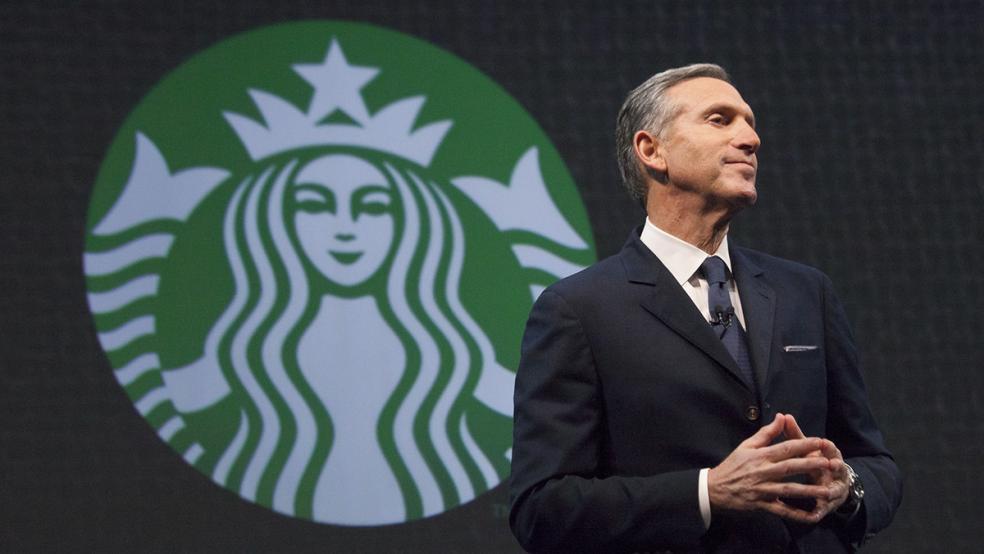When Starbucks founder and executive chairman Howard Schultz announced his retirement earlier this week, he set off a round of speculation about a possible presidential run in 2020. Schultz has never been shy in expressing his political views, vocally supporting Hillary Clinton in 2016 and criticizing the Republican tax cuts as “fool’s gold,” and he has involved his company in numerous politically sensitive projects, including a pledge to hire thousands of refugees and a recent day of racial sensitive training for Starbucks employees in the U.S.
While denying any specific plans to run for office, Schultz made his general political preferences clear on CNBC earlier this week when he expressed concerns about the size of the federal deficit, rejected recent Democratic efforts to develop expensive new government programs such as single-payer health care, and said that spending on entitlements such as Medicare and Social Spending will have to be trimmed at some point.
The comments inspired numerous veterans from both major political parties to warn that Schultz could be in for a “rude awakening,” writes The Washington Post’s Jeff Stein, since the 2016 election showed that traditional fiscal themes have little grip on the public imagination. Donald Trump won while promising to leave Medicare and Social Spending alone, and he remains extremely popular within his own party despite running up huge new deficits. Hillary Clinton lost, even though she promised to balance the budget and pay for any new social programs, and the energy in the Democratic Party is focused on huge new projects such as the jobs guarantee, with little concern for the cost.
To some political pros, Schultz’s comments seem oddly out of synch with the current political climate. Here’s what some of the experts Stein spoke to had to say about Schultz and the fiscal framework he has embraced:
* “I don't understand it. Just think of how people belittled Hillary Clinton's proposals as too centrist, and her proposals were fairly ambitious, especially compared to this. Schultz is laying out an appeal to the small 'fix the debt' crowd, and there's no appetite for that.” – Brian Fallon, national press secretary for Hillary Clinton's 2016 presidential bid
* “Where is the constituency for this? As long as Trump has a stranglehold on Republican voters, which he does, I don't know who the constituency is beyond the few and proud 'Never Trump' [people] like myself for a deficit driven message.” – Tim Miller, aide to former Florida governor Jeb Bush
* “This is pretty typical of what CEOs think the center of American politics is, but it's not reflective of the actual center of policy opinion. Economically conservative and socially liberal with a special focus on the debt is a constituency of very few people.” – Matthew Grossmann, Institute for Public Policy and Social Research at Michigan State
Another political insider, Matt Bennett, a co-founder of the center-left think tank Third Way, told The Daily Beast that, “No one is going to win the election based on fiscal responsibility. It is important but it is not a thing to win elections on. The question is, what is he going to say to people to make their lives better.” In the same article, Karthik Ganapathy of the liberal advocacy group MoveOn said, “I just don’t think a candidate can bet on riding radical centrism all the way to the White House. Voters across the country care about a lot less about Simpson Bowles deficit reduction than they do about fixing a broken health care system.”
For his part, Schultz seems to be interested in avoiding some of the stickier political questions that are raised when it comes to cutting social spending and reducing the debt. “Let's take a centrist approach about getting ideology out,” Schultz said on CNBC, expressing an old bipartisan hope that the solutions lie in the middle and we can find them once we get rid of our partisan biases. But Trump’s election and the leftward drift of the Democratic Party suggests the middle is a pretty lonely place these days. According to a voter study cited by Stein in the Post, voters who are socially liberal and economically conservative like Schultz make up about 4 percent of the electorate.



